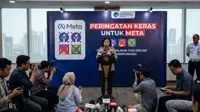SC extends bauxite ban in Odisha, eases iron ore restrictions
19 Apr 2013
In a bit of a setback for Vedanta Resources, the Supreme Court on Thursday kept a ban on bauxite mining in the Niyamgiri Hills Odisha - considered sacred by residents – and said that it's up to the local village body or gram sabha that governs the hills to decide on whether digging would disrupt the environment or their livelihoods.
 After this local decision is taken, the ministry of environment and forests (MoEF) will decide on the clearance for mining. The gram sabha has three months to decide and the ban on mining in the area will stay till then.
After this local decision is taken, the ministry of environment and forests (MoEF) will decide on the clearance for mining. The gram sabha has three months to decide and the ban on mining in the area will stay till then.
In another decision, the apex court also allowed nine more iron ore mines to restart in Karnataka. Earlier it had virtually shut down iron ore mining in the state over rampant corruption and environmental destruction.
The court has ordered the Odisha government to share the details of the Niyamgiri mining proposal with the gram sabha.
The MoEF ministry had withdrawn clearance for the Vedanta group's massive bauxite mining project in the Niyamgiri Hills in August 2010.
This came after the N C Saxena Committee looking into the issue warned that mining in Niyamgiri will severely affect the ecology and the habitat of the primitive Dongria Kondh tribe that lived on the mountain slopes.
The state-owned Odisha Mining Corporation, which has a joint venture with Sterlite, a Vedanta Group company, had challenged the environment ministry's withdrawal of clearance in the Supreme Court.
The approvals for nine more iron ore mines to restart will help domestic steel mills desperate for raw material, but there will still be no exports of iron ore, as the state government has not issued transport permits.
The court stripped about 49 mines of their leases because they had been mining illegally. Taken together, the mines had produced about a third of Karnataka's iron ore.
The Vedanta bauxite project was planned to supply up to 150 million tonnes of bauxite to Vedanta Aluminium, a unit of London-listed Vedanta Resources and India's largest producer of the metal, for a 1-million-tonne a year plant shut since December for lack of the raw material.
The project has drawn the anger of rights groups and highlights the difficult task Prime Minister Manmohan Singh's government faces in balancing economic development with the need to cushion hundreds of millions of poor from the fallout.
Vedanta declined to comment on the court verdict.
India has the world's fifth-largest bauxite reserve of about 593 million tonnes, with the bulk of that in Odisha.
The Vedanta bauxite project is one of several big-ticket investment plans enmeshed in environmental and other concerns. These range from a $12-billion steel plant planned by South Korea's POSCO to a plan by Sterlite Industries Ltd to double capacity at India's largest copper plant, itself now shut over emissions complaints.
India used to be the world's third-biggest exporter of iron ore, shipping about half of its annual output of around 200 million tonnes, mostly to China. But a government clampdown aimed at curbing illegal mining in 2010, and steps to retain output at home, slashed exports to just over 30 million tonnes last year.
In Karnataka, Thursday's decision adds to the 18 mines that the court had already allowed to restart, and includes one mine operated by Vedanta-controlled Sesa Goa. They have all had to come up with detailed plans to meet environmental and security conditions.
Karnataka was the country's second-biggest producer of the ore before the ban, at about 45 million to 50 million tonnes.
Basant Poddar, vice-president of the Federation of Indian Mineral Industries, welcomed the Supreme Court move, saying it would "weed out all the bad miners".
He expected production of 10 million to 15 million tonnes in the current year, including 1 million tonne per month from state miner NMDC Ltd. Poddar forecast a range of 15 million to 25 million tonnes for next year.
JSW Steel (JSTL.NS), which uses iron ore from Karnataka in its mills, welcomed the move, saying it would have a positive impact on the steel sector and the Indian economy.


















